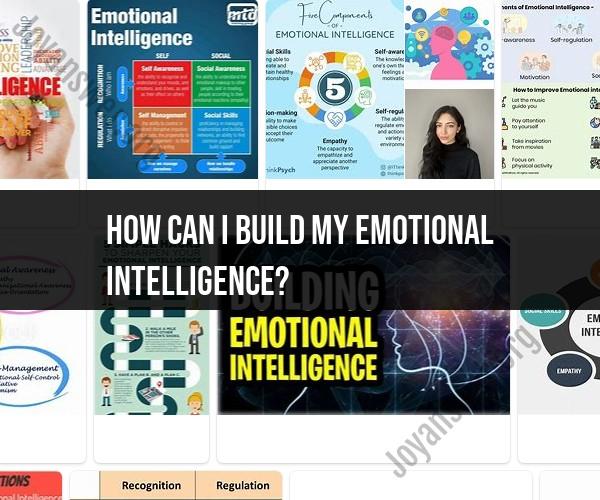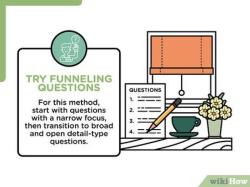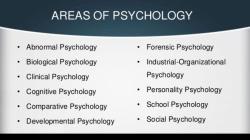How can I build my emotional intelligence?
Building emotional intelligence (EQ) is a gradual process that involves self-awareness, self-regulation, empathy, and effective interpersonal skills. Here are some practical steps to help you develop your emotional intelligence:
Self-Awareness:
- Reflect on Your Emotions: Take time each day to reflect on your emotions. Pay attention to what you're feeling and why.
- Journaling: Keep a journal to record your thoughts and emotions. This can help you identify patterns and triggers.
- Mindfulness and Meditation: Practice mindfulness and meditation to stay present and become more aware of your emotions as they arise.
Self-Regulation:
- Identify Triggers: Recognize the situations or people that trigger strong emotional reactions in you.
- Pause and Breathe: When faced with a strong emotion, take a deep breath and give yourself a moment to respond thoughtfully rather than react impulsively.
- Stress Management: Develop healthy stress-coping strategies such as exercise, deep breathing, or relaxation techniques.
- Conflict Resolution: Learn effective conflict resolution skills, such as active listening and assertive communication.
Empathy:
- Practice Active Listening: When talking to someone, focus on truly understanding their perspective rather than formulating your response.
- Put Yourself in Their Shoes: Try to see situations from other people's points of view. Consider their feelings, needs, and motivations.
- Ask Open-Ended Questions: Encourage others to share their thoughts and emotions by asking open-ended questions.
- Cultivate Compassion: Develop a compassionate attitude towards yourself and others. Be kind and forgiving.
Social Skills:
- Develop Effective Communication: Improve your verbal and non-verbal communication skills. Pay attention to your tone, body language, and facial expressions.
- Practice Empathetic Responses: Respond to others' emotions with empathy and validation. Acknowledge their feelings and offer support.
- Conflict Resolution: Learn to resolve conflicts in a constructive manner. Focus on finding win-win solutions rather than winning arguments.
- Build Relationships: Nurture your relationships by staying connected, showing appreciation, and being reliable.
Continuous Learning:
- Seek Feedback: Ask for feedback from trusted friends, family, or colleagues about your emotional responses and communication style.
- Read About Emotional Intelligence: There are many books and resources available that can provide further insights and strategies for improving EQ.
- Emotional Intelligence Workshops: Consider attending workshops or courses on emotional intelligence to deepen your understanding and practice.
Empathetic Observation:
- Observe People: Pay attention to the emotions and body language of people around you, even in everyday interactions like at work or in public places.
- Practice Empathetic Responses: When you notice someone experiencing emotions, try to identify and understand what they might be feeling.
Set Realistic Goals:
- Set Specific EQ Goals: Identify specific aspects of emotional intelligence you want to improve and set achievable goals.
- Track Progress: Keep track of your progress in developing your emotional intelligence. Celebrate small victories along the way.
Role Models:
- Identify Role Models: Identify people in your life or in the public eye who exhibit high emotional intelligence. Learn from their example.
Embrace Mistakes:
- Learn from Mistakes: Understand that building emotional intelligence is a lifelong journey. Embrace your mistakes and use them as opportunities for growth.
Practice Patience:
- Be Patient with Yourself: Developing emotional intelligence takes time and effort. Be patient with yourself and allow room for improvement.
Remember that building emotional intelligence is a continuous process. By incorporating these steps into your daily life, you can gradually enhance your ability to understand, express, and manage your own emotions while also building better relationships with others.













